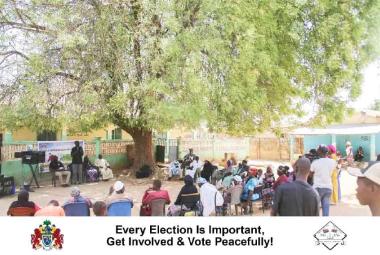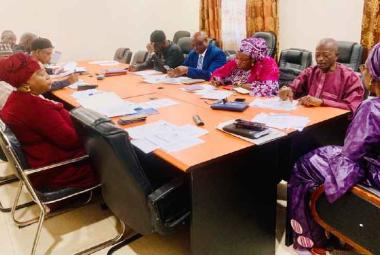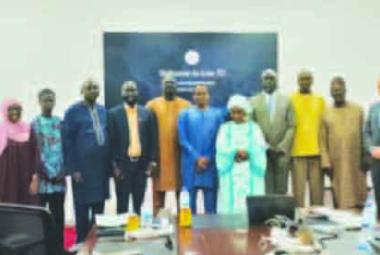By Modou Kanteh
The Principal Assistant Secretary (PAS) at the Ministry of Fisheries, Water Resources and National Assembly Matters, Ahmat Tijan Jobe has warned that The Gambia’s water resources, including The Gambia River and groundwater aquifers, are increasingly vulnerable to climate change impacts. He made reference to altered rainfall patterns, floods, and droughts as evidences of the impacts of climate change.
Mr Jobe was speaking last week - February 6th - during the official opening of a day-long stakeholders’ workshop on enhancing Integrated Water Resources Management (IWRM), through stakeholder participation held at TANGO.
He acknowledged that water resources are vital to national development, citing agriculture, livelihood and ecosystems are some of the key areas that make water vital.
In reference to the workshop, Mr Jobe said it marked an important step towards strengthening water resources management and collaboration among key stakeholders in The Gambia.
Integrated Water Resources Management, he posited, offers a sustainable approach to addressing these challenges and ensuring long-term water security.
The project is being funded through the UNESCO Participation Programme 2024-2025, and focuses on operationalising the Water Information Network System (WINS), an open-access platform that enhances the sharing and visualisation of water-related data.
The Principal Assistant Secretary commended UNESCO for supporting the government of The Gambia through the Department of Water resources.
Deputising for the Secretary General of UNESCO at the event, Lamin Jarju, affirmed that the workshop is part of the UNESCO Participation Programme and that the project seeks to promote the integrated development, management and utilisation of water, land and related resources; such as land environment.
According to Jarju, the Intergovernmental Hydrological Programme’s Water Information Network System (IHP-WINS) is designed to promote the sharing and dissemination of water-related data and information among stakeholders involved in water resources management, as part of the UNESCO IHP mandate.
“The main objective of IHP-WINS is to enhance the availability, accessibility, and usability of water-related information, with a focus on supporting evidence-based decision-making and sustainable water resources management. It aims to facilitate the exchange of data, knowledge, and best practices among stakeholders at various levels, including national, regional, and global scales,” he further explained.
Mr.Jarju suggested that water education should be also in school curriculum, arguing that “it is a very important resource that no country can go without”.





